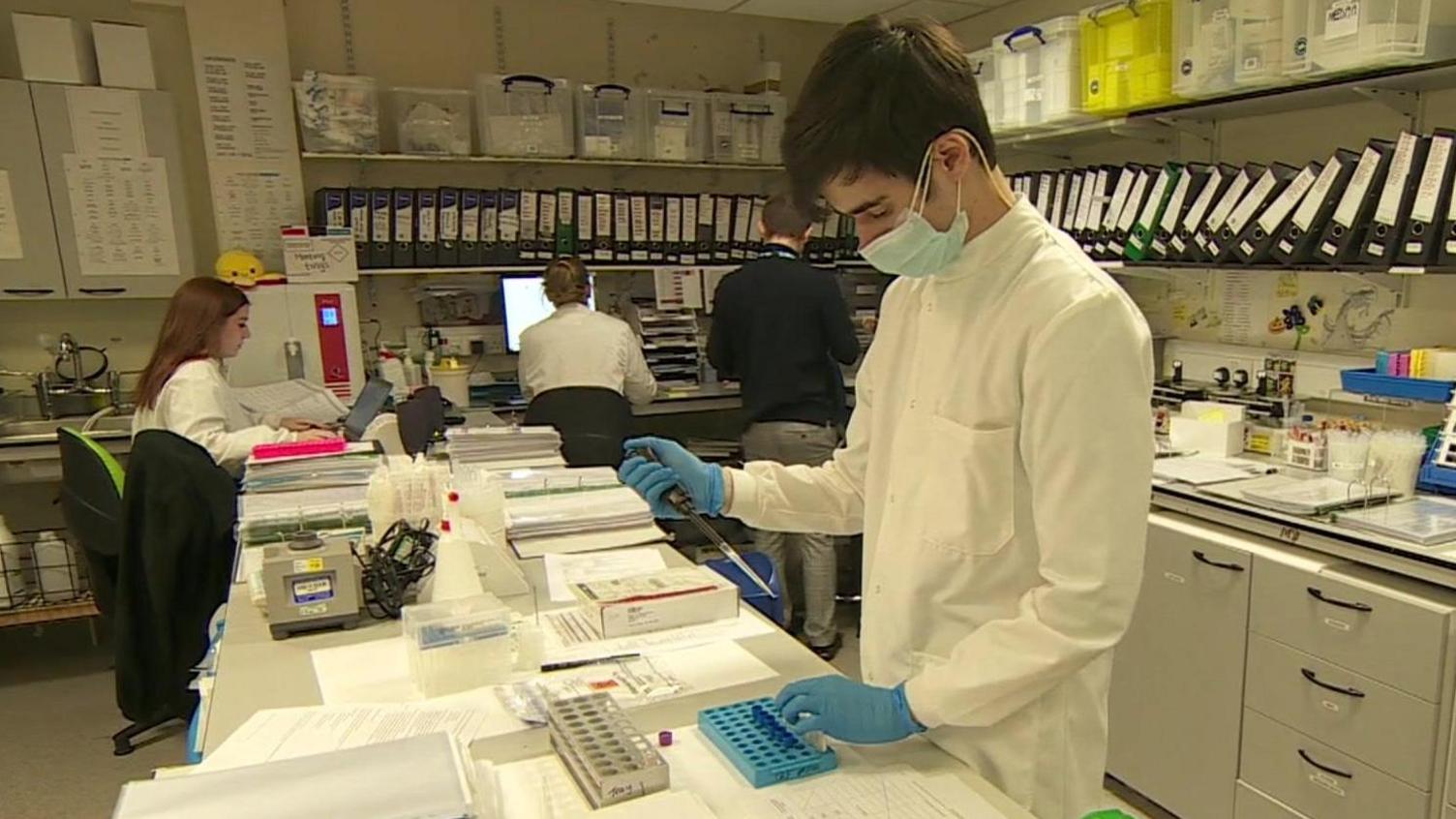MS worsening linked to inflammation outside the brain

About 135 people are diagnosed with MS each week in the UK
- Published
Inflammation caused by illnesses like colds could speed up the progression of multiple sclerosis (MS), research has found.
Led by scientists from the University of Southampton and University Hospital Southampton, the study followed 50 people living with the condition for two-and-a-half years.
It revealed common illnesses, including flu and urinary tract infections (UTIs), could be linked with the loss of nerve cells in the spinal cord, worsening MS symptoms.
The study highlighted the need for people with MS to seek medical help early on to minimise infections, researchers said.
More than 150,000 people in the UK live with MS.
The condition is caused by the immune system mistakenly attacking the nerves in the brain and spinal cord.
Over time, this can lead to the loss of nerves, causing the condition to worsen.
The Systemic Inflammation in Multiple Sclerosis (SIMS) study measured the extent of inflammation in the body by looking at a weekly urine sample from participants.
Prof Ian Galea, a neurologist and lead researcher on the study, said it was important for people with MS to get all recommended vaccinations and seek prompt attention for bladder infections.
"Following a healthy lifestyle could also be beneficial, as factors like smoking, alcohol and obesity are linked to inflammation," he added.

Richard Humpston, who has the autoimmune condition, took part in the study
One of the study's participants, Richard Humpston from Portsmouth, was diagnosed with primary progressive MS in 2014.
Mr Humpston, 43, was asked to freeze samples of his urine every week and undergo regular tests and check-ups in hospital.
"I was told afterwards that there was some evidence that I had urine infections during the study," he said.
"The results of this trial have highlighted how vital it is for me to stay hydrated to avoid this type of infection in future."
Follow BBC South on Facebook, external, X (Twitter), external, or Instagram, external. Send your story ideas to south.newsonline@bbc.co.uk, external or via WhatsApp on 0808 100 2240, external.
- Published13 July 2024

- Published18 June 2024

- Published31 May 2024
